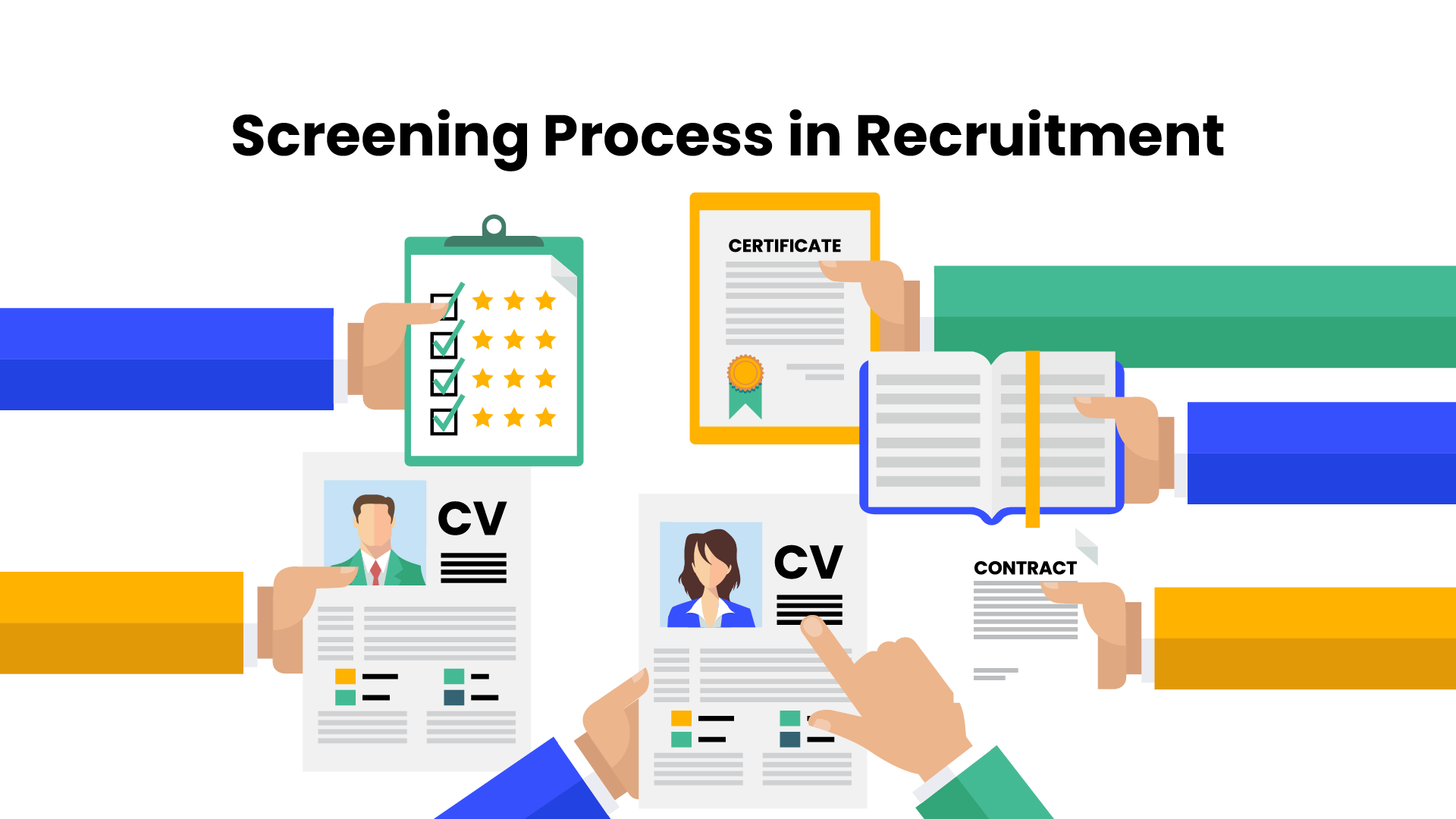
Learn the five most common screening methods, why they matter, and how the right tools help teams hire faster with clearer decisions.
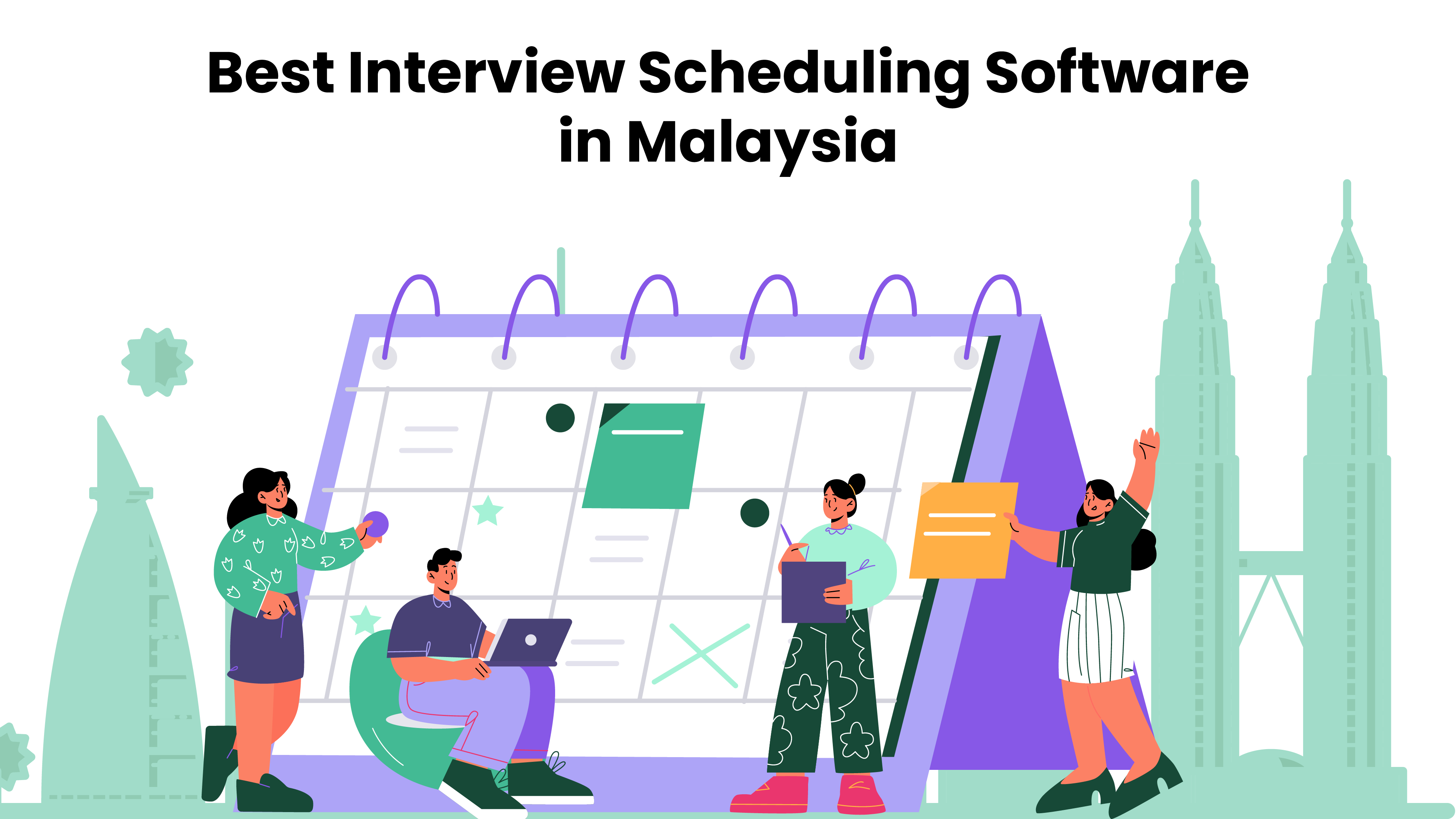
One of the biggest pain points in recruitment is interview coordination. Between back-and-forth emails, conflicting calendars, and sudden reschedules, recruiters can lose hours every week.
In fact, research shows that 65% of candidates feel left in the dark during recruitment, leading to higher drop-off rates and missed opportunities to hire top talent.
That’s why more HR teams are turning to interview scheduling software. With automated reminder and self-booking features, these tools make the hiring process faster, smoother, and more candidate-friendly.
Hiring teams in Malaysia are starting to see that scheduling tools can do more than just save time. They help reduce no-shows and scheduling conflicts, give candidates more flexibility, speed up time-to-hire, and connect smoothly with existing HR systems. Let’s break down these key benefits in detail.
Interview scheduling software significantly cuts down on candidate no-shows by automating reminders via email and SMS, ensuring both candidates and recruiters are aligned. Some platforms even sync directly with popular calendar tools like Google Calendar or Outlook, minimizing scheduling conflicts.
Allowing candidates to book their own interview slots removes the back-and-forth emails. This flexibility improves the overall candidate experience, since applicants feel more in control. It also lowers the risk of candidates dropping out during the process.
Recruiters who use scheduling automation save 2 to 10 hours each week, freeing up time for more strategic tasks. A shorter hiring process also improves the candidate experience, since delays often frustrate applicants. When companies move quickly and communicate well, their employer brand benefits.
Modern scheduling platforms are designed to integrate with ATS, HR systems, and video interview tools. This means candidate data stays accurate across systems which will reduce the need for manual updates. Integrations also help prevent double bookings and ensure recruiters always see the latest status in one place.
See also: 15 Top Video Interviewing Softwares (and What Makes Them Unique)
With these benefits in mind, here are the seven best interview scheduling software options in Malaysia, each offering different strengths for various company sizes.
* Pricing shown is for bundled suites, not standalone scheduling
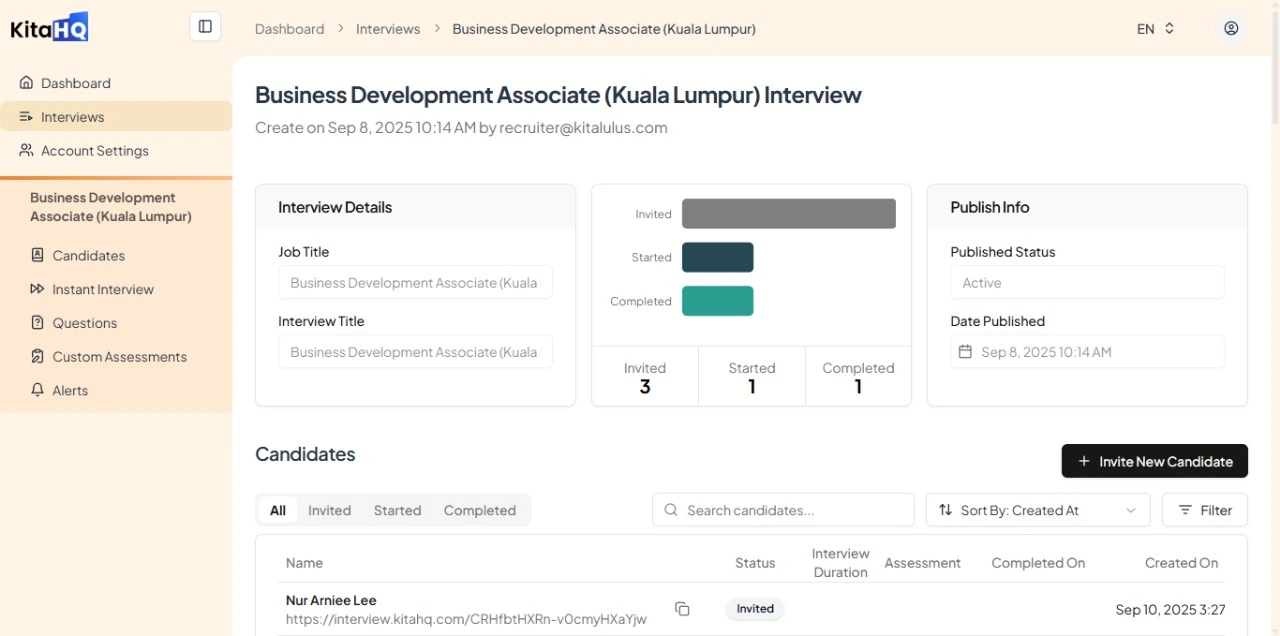
Overview:
KitaHQ is an AI video interview platform with built-in interview scheduling that simplifies the early stages of hiring. It also includes AI-powered CV screening to quickly identify and rank top candidates.
Designed for businesses in Malaysia and globally, it automates the most time-consuming parts of recruitment, helping HR teams deliver a smoother, faster, and better candidate experience.
Key Features:
Pros:
Ideal Use Case: KitaHQ works well for startups, mid-sized firms, and large enterprises alike. It is especially best for companies hiring at scale, such as retail, F&B, customer service, and BPO sectors, where quick screening and efficient scheduling are critical. It’s also highly useful for HR teams looking to improve candidate experience by giving applicants flexibility and transparency throughout the process.
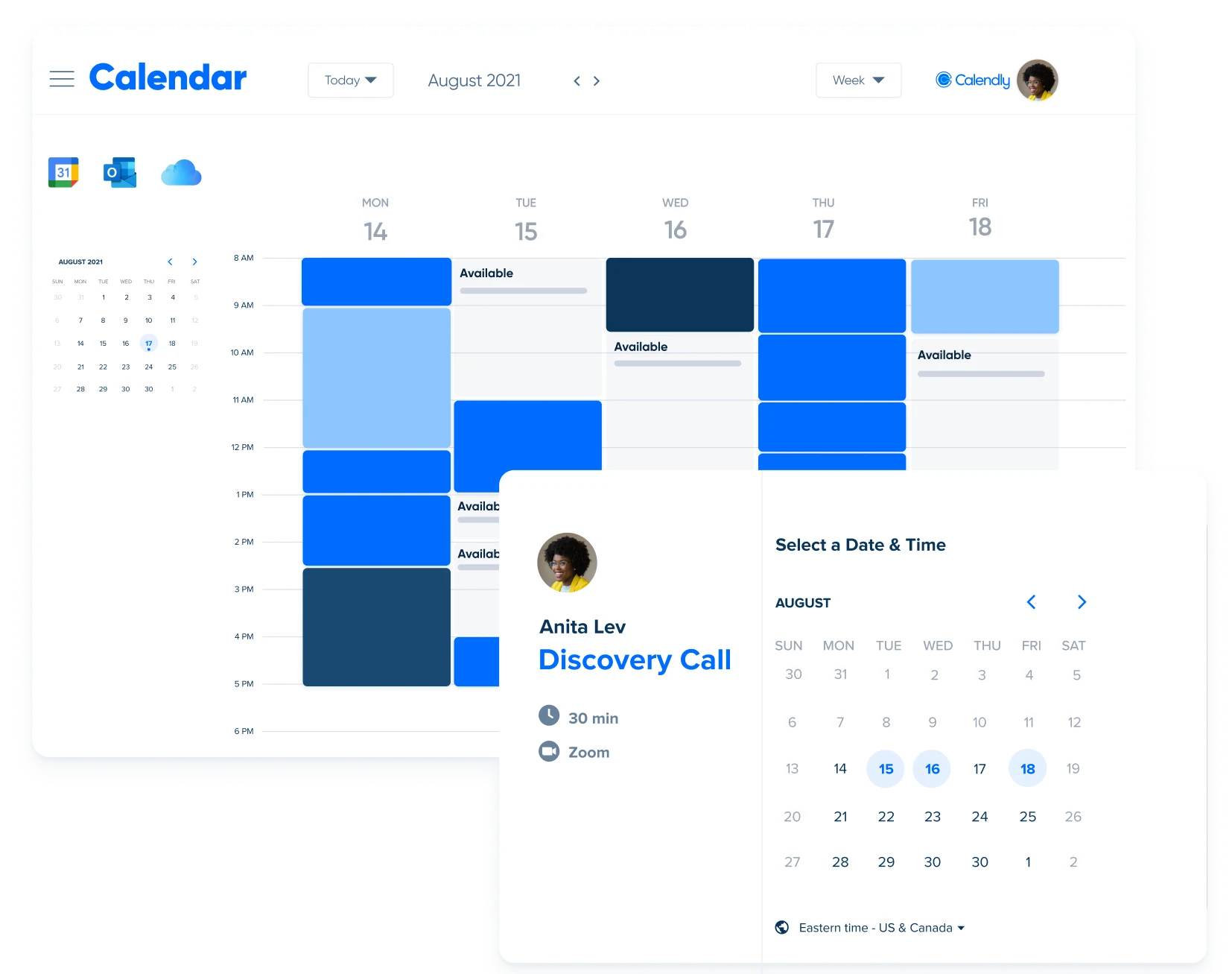
Overview:
Calendly is a scheduling platform that makes it easy to share your availability via a link and let others book meetings directly. It also keeps your calendar in sync so you can avoid conflicts.
This platform supports individuals and teams alike and aims to reduce coordination overhead. Recruiters who are using it can streamline interview scheduling and manage candidate meetings without juggling back-and-forth emails.
Key Features:
Pros:
Ideal Use Case: Calendly fits best with small and midsize companies that need smoother interview scheduling across busy calendars. Larger teams also benefit when coordinating across departments or time zones.
See also: Top 10 AI Recruiting Software for Malaysia Companies
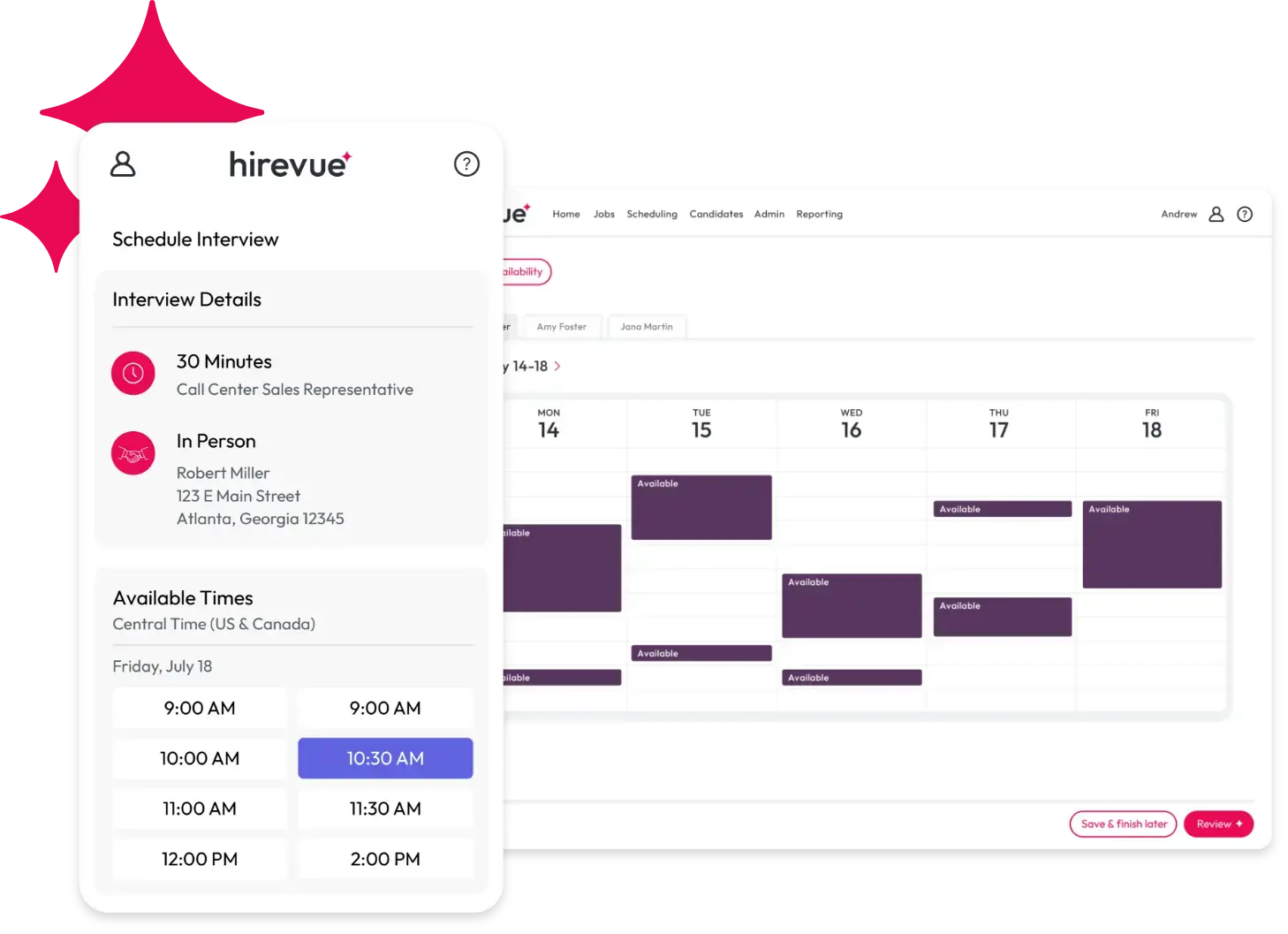
Overview:
HireVue is a hiring platform centered around video interviewing which is complemented by assessments and AI tools. It blends interviews with predictive analytics to support better talent assessment.
The platform handles multiple recruiting stages such as screening, scheduling, and candidate engagement. Recruiters using it can reduce manual hiring steps and get more structured insight into candidate performance.
Key Features:
Pros:
Ideal Use Case: HireVue is best suited for large organizations with high-volume hiring where automated scheduling and structured interviews save time.
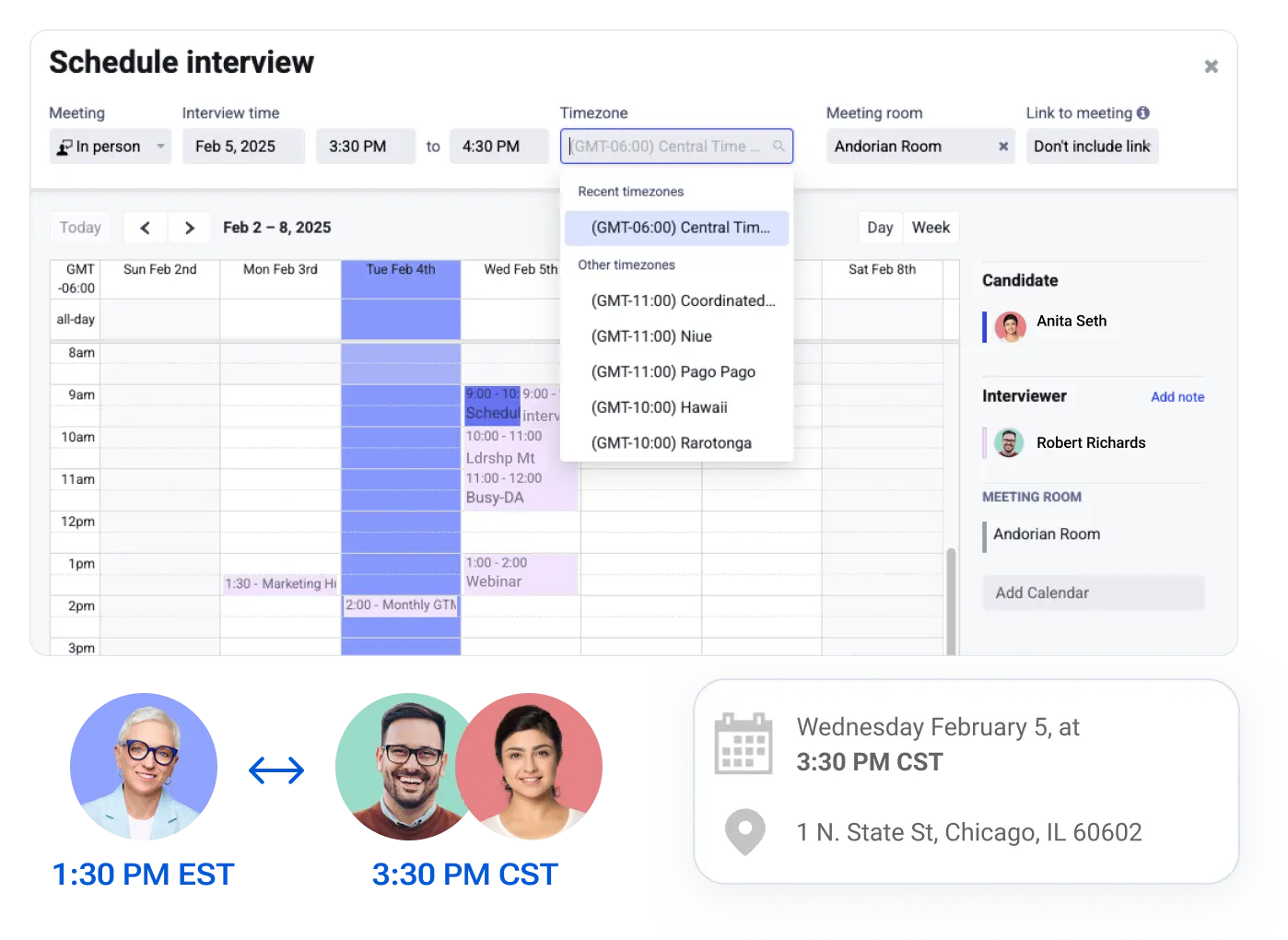
Overview:
Spark Hire is a talent acquisition platform built around video interviewing and candidate assessments. Its tools support both one-way and live video formats and integrate scheduling with candidate evaluation.
The platform includes options for behavioral assessments, reference checks, and ATS workflows. Recruiters using it can streamline screening, coordinate interviews, and centralize candidate evaluation in one place.
Key Features:
Pros:
Ideal Use Case: Spark Hire is well suited for small to medium-sized organizations that conduct periodic or moderate volumes of hiring and want a video-first scheduling approach.

Overview:
Jobma is a video interviewing platform that supports both live and asynchronous formats with AI scoring and proctoring. It also incorporates scheduling tools and assessment types like written, audio, and coding tests.
The platform brings interviewing, evaluation, and scheduling into a unified workflow, and it offers ATS and HR integrations to connect with popular applicant tracking systems. Recruiters using it can streamline candidate screening, unify records, and reduce logistical overhead.
Key Features:
Pros:
Ideal Use Case: Jobma is best suited for mid-sized companies or enterprises that handle moderate to high volumes of candidate interviews.
See also: 5 Best Video Interview Software to Scale High-Volume Hiring in Malaysia
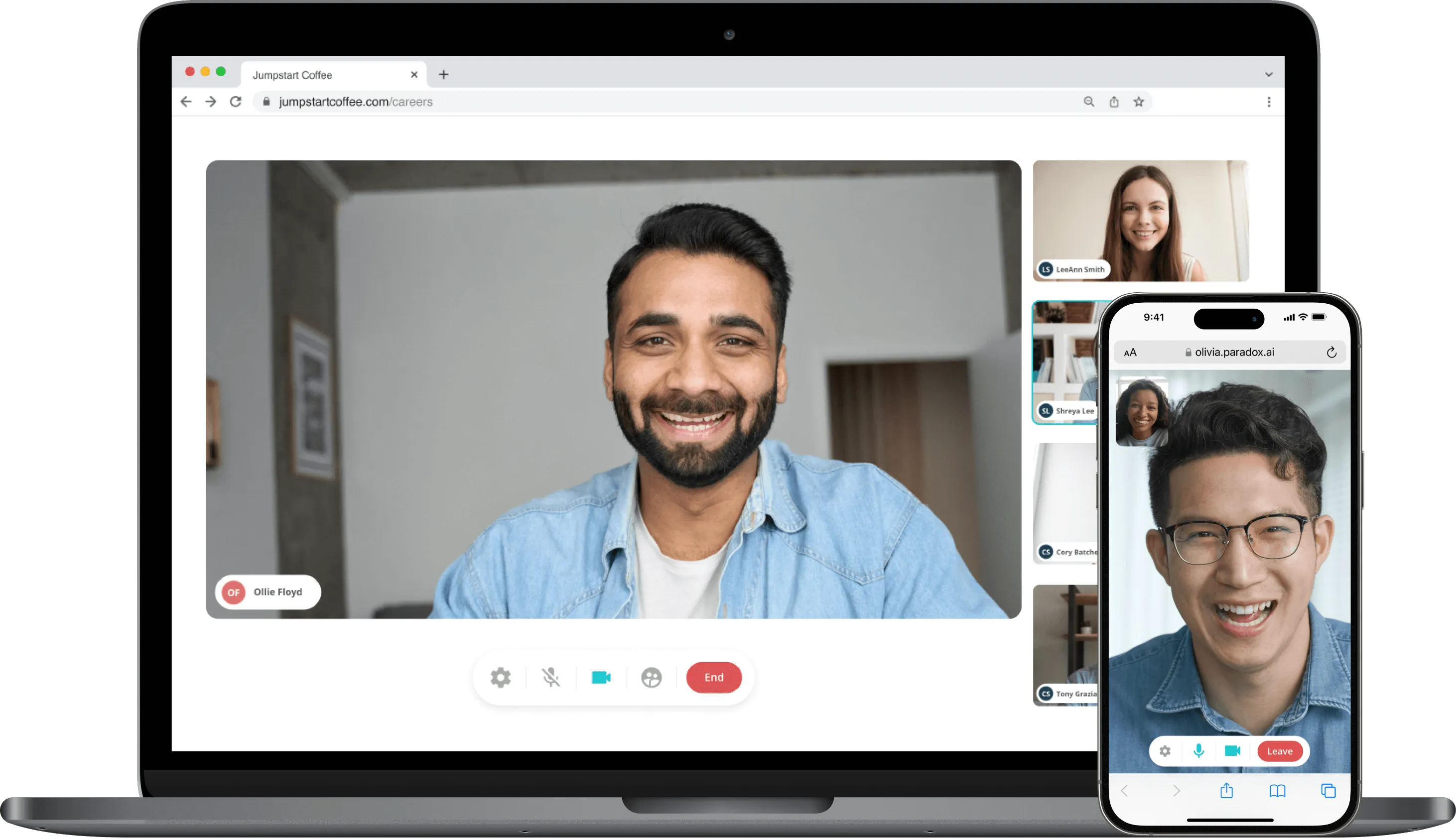
Overview:
Paradox (Olivia) is a conversational recruiting assistant built to automate tasks like candidate screening and interview scheduling. It uses chat or text interactions so that candidates engage in a more natural way.
Olivia connects with existing recruiting systems and supports workflows across screening, scheduling, and candidate care. Recruiters using it can cut manual coordination, manage candidate pipelines with less friction, and maintain their core systems in sync.
Key Features:
Pros:
Ideal Use Case: Paradox (Olivia) works especially well for mid-to-large organizations that run frequent or high-volume hiring campaigns and want to automate coordination.
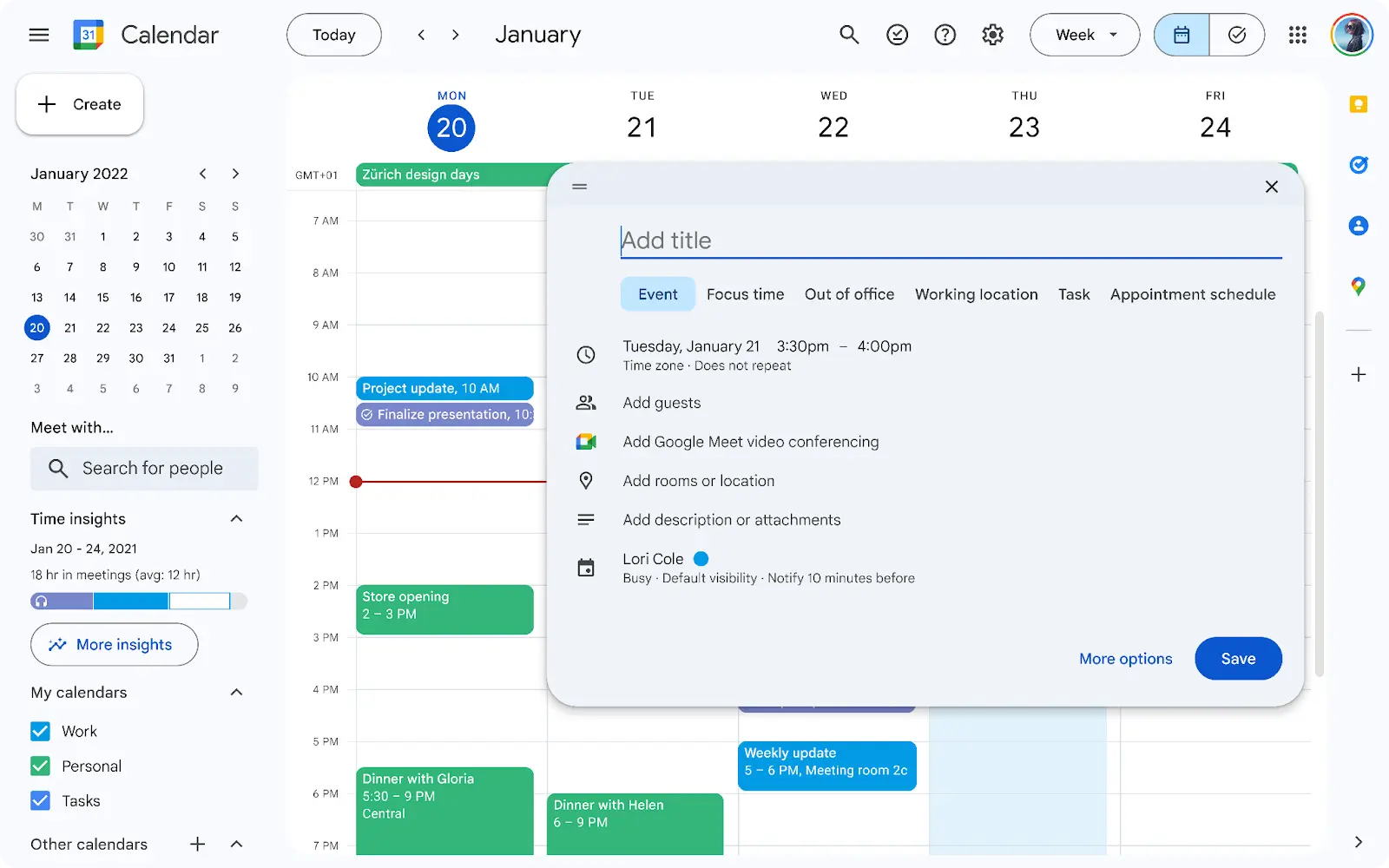
Overview:
Google Calendar is a time management tool for creating shared calendars, scheduling events, and handling recurring meetings. It allows adding guests, locations, attachments, and event details to make coordination smoother.
The product syncs across devices so users can stay organized anywhere. Recruiters using it can manage interview slots, send invites, and keep all stakeholders aligned. Google Calendar is part of Google Workspace, so it comes bundled with Gmail, Drive, Meet, and other collaboration tools.
Key Features:
Pros:
Ideal Use Case: Google Calendar works well for small to midsize teams that need a basic tool to manage interview slots alongside general calendars.
Interview scheduling software improves the candidate journey in several clear ways. Here’s the details:
When applicants can choose interview slots themselves, they feel more in control of the process. This freedom removes endless back-and-forth and gives them ownership of their schedule. It creates a sense of empowerment that improves how they view the hiring experience.
Reminders and confirmations help candidates feel more at ease because they know what to expect. Many candidates report frustration when communication is unclear or delayed, which adds stress before interviews. Reliable updates reduce uncertainty and let them focus fully on preparation.
Hearing back quickly after an interview shows respect for a candidate’s time. Long silences or delays damage trust and can push applicants away. Companies that respond faster leave a stronger impression and strengthen their employer brand in the eyes of job seekers.
See also: 5 Top Rated Asynchronous Video Interview Platforms with Multilingual Support in Malaysia
Interview scheduling software has become important for companies that want smoother hiring. It shortens the time to connect with candidates and reduces the stress of back-and-forth messages. When scheduling is managed well, it improves both recruiter productivity and candidate experience.
HR managers in Malaysia should look for tools that match their team size, hiring pace, and industry needs. Exploring different options makes it easier to find a platform that connects with current systems.
KitaHQ offers more than scheduling. It runs structured AI video interviews, creates job-based questions automatically, and delivers detailed reports with transcripts and scores.
The platform is also available in Malay and complies with Malaysia’s Personal Data Protection Act which will add extra assurance for recruiters in Malaysia while remaining suitable for global teams.
Book a demo of KitaHQ today to see how it can simplify scheduling, improve candidate evaluation, and cut down hiring time.